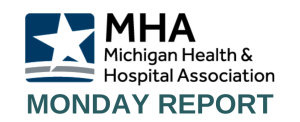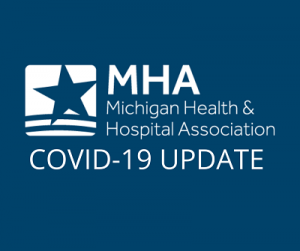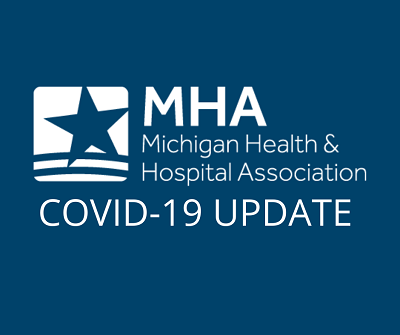
MDHHS Expands Medicaid Coverage to Include CHW Services
The Michigan Department of Health and Human Services (MDHHS) recently announced an expansion of Medicaid coverage effective Jan. 1, 2024 to include community health worker (CHW) services. The MDHHS also issued a final policy establishing …
Hospital-based Substance Use Disorder Consultation Reimbursement Coverage
Physicians and other qualified practitioners will be reimbursed for substance use disorder (SUD) consultations in the inpatient hospital or emergency department setting effective Jan. 1, 2024. These services include assessment, evaluation, diagnosis and treatment of individuals during …
Coverage of Office-based Substance Use Treatment Services
Primary healthcare providers will be reimbursed for substance use disorder (SUD) treatments that are provided in an office-based primary care setting effective Jan. 1, 2024. This applies to providers who do not have a specialty SUD benefit services contract with a Prepaid .…
Guide and Action Plan Created to Support Health Equity Programming
As strides are made to address inequities and disparities in healthcare, governing and regulatory bodies including The Joint Commission and the Centers for Medicare & Medicaid Services have created guidelines, benchmarks and policies that evolve over time. The MHA Keystone …
Enrollment Deadline Friday for MHA Governance Affinity Group
The deadline to enroll a trustee in the new MHA Governance Affinity Group is Friday, Dec. 22. The benefits of a well-run meeting go beyond parliamentary procedure. Proper communication and facilitation skills needed to make decisions about strategic issues drive performance and .…
Hospital Vaccine Resources Available
The MHA is at the forefront of advocating for vaccination awareness and education, particularly focusing on the challenges associated with the Beyfortus (nirsevimab) monoclonal antibody for infants entering their first respiratory syncytial virus season. The association is …
Latest AHA Trustee Insights Outlines the Board’s Role in Patient Experience
The December edition of Trustee Insights, the monthly digital package from the American Hospital Association (AHA), includes an article on the board’s role in patient experience. The average hospital has turned over 105% of its workforce in the last five years and national …
The Keckley Report
 The Affordable Care Act is Back on Stage: What to Expect
The Affordable Care Act is Back on Stage: What to Expect
“In the last 2 weeks, the Affordable Care Act (ACA) has been inserted itself in Campaign 2024 by Republican aspirants for the White House …
It’s no surprise. Health costs and affordability rank behind the economy as top issues for Republican voters per the latest Kaiser Tracking Poll. And distaste with the status quo is widespread and bipartisan: per the Keckley Poll (October 2023), 70% of Americans including majorities in both parties and age-cohorts under 65 think “the system is fundamentally flawed and needs major change.” To GOP voters, the ACA is to blame. …
The ACA is back on the radar in U.S. healthcare. Stay tuned.”
News to Know
 Clarence Rucker, manager, patient safety and quality, MHA Keystone Center, is featured in COLOR Magazine’s 40 Under 40 Powerlist.
Clarence Rucker, manager, patient safety and quality, MHA Keystone Center, is featured in COLOR Magazine’s 40 Under 40 Powerlist.- Due to the holidays, Monday Report will not be published Dec. 25 and Jan. 1, and will resume its normal schedule Jan. 8.
MHA in the News
The MHA received media coverage the week of Dec. 11 related to post-secondary nurse degree programs and telehealth.








